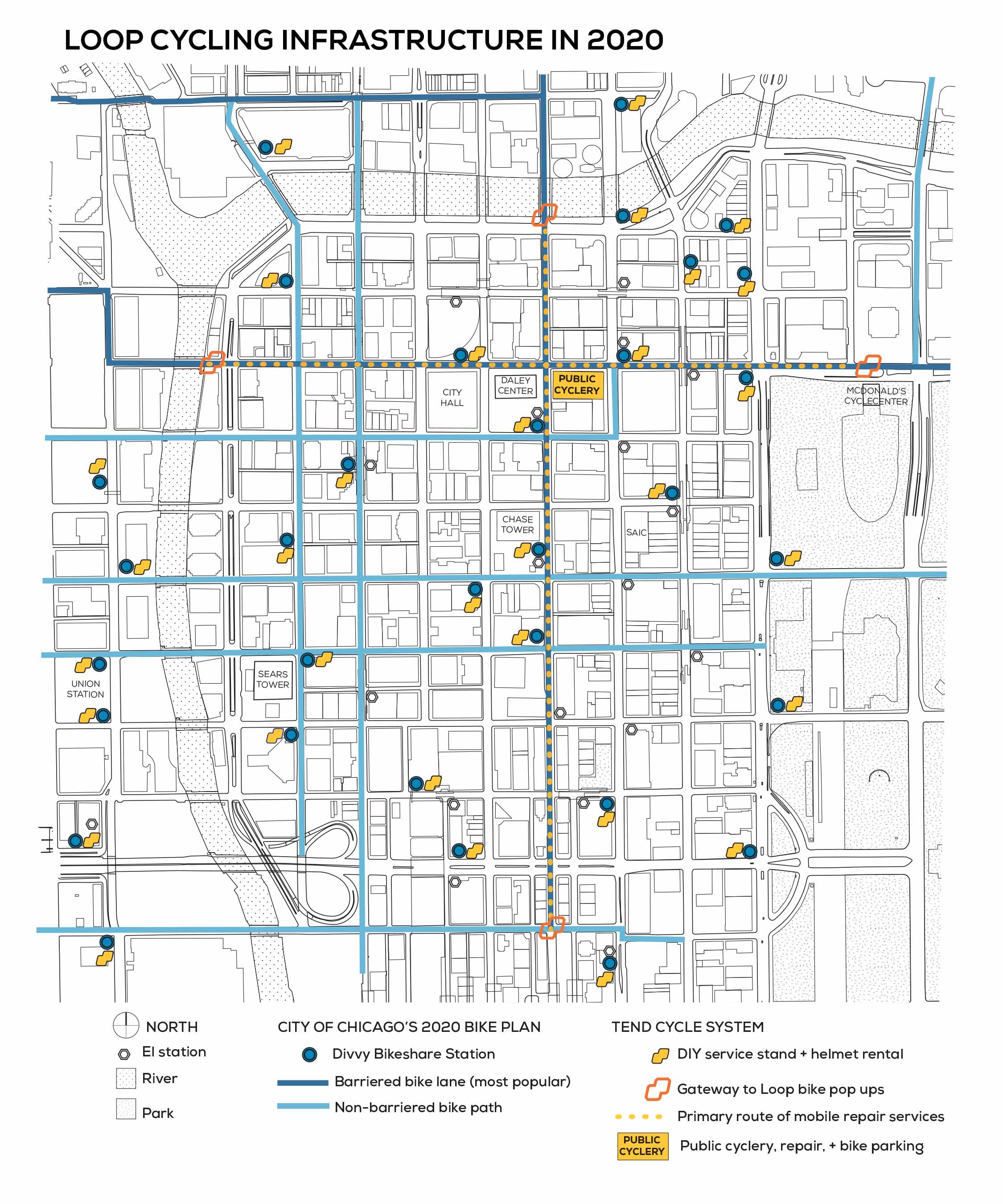Tend Cycle System is an adaptable set of interventions which provides new typologies of transit infrastructure for Chicago’s Loop.
This network of public amenities for commuters complements the city’s official bike agenda, “Chicago Streets for Cycling 2020.” This urban policy increases path mileage and expands bike-sharing facilities. The current momentum surrounding the Mayor’s bike plan is an opportunity for architects to facilitate new forms of infrastructure.
As a counterpart to policy, Tend Cycle System directly address the daily needs of bike commuters. It supports bike ownership through new public services, honing in on the Loop, Chicago’s primary commuter destination.
Historic trends show bike ridership surges each time there is an innovation in bike comfort and convenience. Presently, about 2% of Chicagoans commute to work by bicycle while 64% arrive by car. However, 60% report that they are “interested but concerned” about cycling. What are these concerns? Moreau met with many commuters and bike advocates to develop Tend’s set of amenities. These new public services are direct responses to typical cycling concerns, ranging from security to hygiene to maintenance.
Disperse D.I.Y. bike repair stands can be attached to existing bike share stations, increasing convenience and safety for those with basic repair know-how and inspiring new riders to become curious about ownership and bike maintenance.
Tend Cycle System proposes interventions operating at three scales: disperse, mobile, and central. At the disperse scale, D.I.Y. bike repair tools and pumps can be clipped onto Divvy bike-share stations downtown, to support a broader range of urban cyclists. Mobile interventions, inspired by food trucks, include maintenance services on the move. With Tend’s mobile repair service, commuters can lock up their problematic bikes, contact a nearby Tend bike repair agent, and ride home after work.
Mobile repair services can fluctuate with seasons, traffic flows throughout the day, and changing neighborhood density. As bike shop storefronts decline due to internet bike sales, local bike shop owners are currently expressing a desire to shift their business models to be more mobile and repair-centric.
Centrally, Tend Public Cyclery offers a new architectural typology for a bike commuter hub. As the implementation of the city’s bike plan progresses, Randolph and Dearborn will be the two major axes for Loop cycling. Vacancy-plagued Block37 is located at this ideal intersection for a bike hub.
Prominently across from the Daley Center, Tend Public Cyclery welcomes all kinds of commuters to a bustling cafe, a bike repair shop, an info desk, and educational workshops.
Below grade, at the Pedway level, currently sits a large unfinished basement, unoccupied in part due to a cancelled train station. Commuters cycle down a playful ramp to secure indoor bike parking, lockers, and shower facilities. Occupying this underutilized urban space with bike infrastructure would elevate the status of Chicago as the national leader for cycling.
Tend Cycle System complements urban policy through design to impact the routine decisions
of commuters for a sustainable, healthy city. Architects are capable of activating dialogue between local stakeholders to provoke cities to change.



